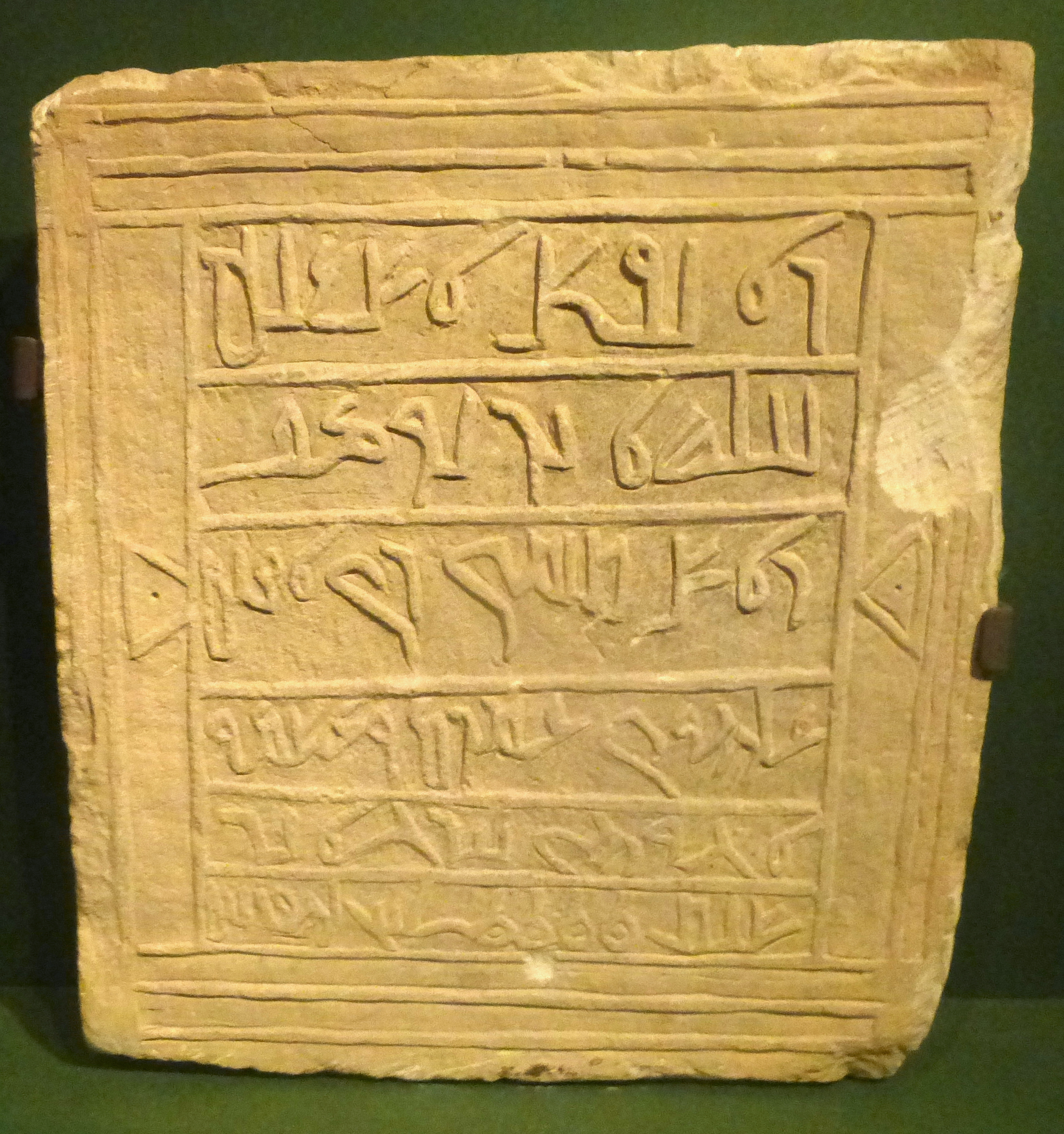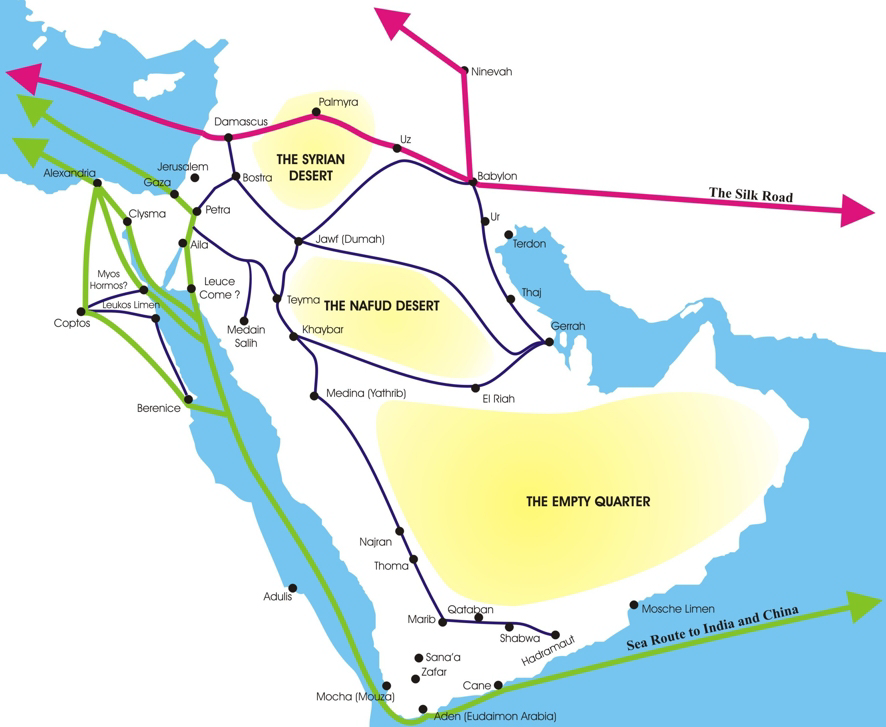|
Khaabou
According to the early Christian bishop Epiphanius of Salamis (c. 315–403), Chaabou or Kaabu (; ) was a goddess in the Nabataean pantheon—a virgin who gave birth to the god Dusares. However, a few modern scholars claim without proof that Epiphanius may have mistaken the word ''kaʿbu'' ("cube", etymologically identical to the name of the Kaaba), referring to the stone blocks used by the Nabateans to represent Dusares and possibly other deities, for the proper name of a goddess. His report that Chaabou was a virgin was likely influenced by his desire to find a parallel to the Christian belief in the virgin birth of Jesus, and by the similarity of the words ''ka'bah'' and ''ka'ibah'' ("virgin") in Arabic, the native tongue of the Nabataeans. See also *al-Lat *Kaaba The Kaaba (), also spelled Kaba, Kabah or Kabah, sometimes referred to as al-Kaba al-Musharrafa (), is a stone building at the center of Islam's most important mosque and Holiest sites in Islam, holiest site, ... [...More Info...] [...Related Items...] OR: [Wikipedia] [Google] [Baidu] |
Epiphanius Of Salamis
Epiphanius of Salamis (; – 403) was the bishop of Salamis, Cyprus, at the end of the Christianity in the 4th century, 4th century. He is considered a saint and a Church Father by the Eastern Orthodox Church, Eastern Orthodox, Catholic Churches, and some Presbyterians. He gained a reputation as a strong defender of orthodoxy. He is best known for composing the ''Panarion'', a compendium of eighty Heresy, heresies, which included also pagan religions and philosophical systems. There has been much controversy over how many of the quotations attributed to him by the Byzantine Iconoclasts were actually by him. Regardless of this, he was clearly strongly Aniconism in Christianity, against some contemporary uses of images in the church. Life Epiphanius was either born into a Romaniote Jews, Romaniote Christian family or became a Christians , Christian in his youth. Either way, he was a Romaniote Jew who was born in the small settlement of Besanduk, near Bayt Jibrin, Eleutheropolis ... [...More Info...] [...Related Items...] OR: [Wikipedia] [Google] [Baidu] |
Nabataean Aramaic
Nabataean Aramaic is the extinct Aramaic variety used in inscriptions by the Nabataeans of the Transjordan_(region), East Bank of the Jordan River, the Negev, and the Sinai Peninsula. Compared with other varieties of Aramaic, it is notable for the occurrence of a number of loanwords and grammatical borrowings from Arabic or other Ancient North Arabian, North Arabian languages. Attested from the 2nd century BC onwards in several dozen longer dedicatory and funerary inscriptions and a few legal documents from the period of the Nabataean Kingdom, Nabataean Aramaic remained in use for several centuries after the kingdom's annexation by the Roman Empire in 106 AD. Over time, the distinctive Nabataean script was increasingly used to write texts in the Arabic language. As a result, its latest stage gave rise to the earliest form of the Arabic script, known as History of the Arabic alphabet#Pre-Islamic phases, Nabataeo-Arabic. The phonology of Nabataean Aramaic can only be re ... [...More Info...] [...Related Items...] OR: [Wikipedia] [Google] [Baidu] |
Nabataean Religion
The Nabataean religion was a form of Religion in pre-Islamic Arabia, Arab polytheism practiced in Nabataea, an ancient Arab nation that was well established by the third century BCE and lasted until the Roman annexation in 106 CE.Patrich, Joseph. The Formation of Nabataean Art: Prohibition of a Graven Image Among the Nabateans. Jerusalem: Magnes, 1990. Print. The Nabateans were polytheistic, worshiping a wide variety of local gods, as well as deities such as Baalshamin, Isis, and Greco-Roman gods, including Tyche and Dionysus. They conducted their worship at temples, high places, and betyls. Their religious practices were mostly aniconic, favoring geometric designs to adorn sacred spaces. Much knowledge of Nabataean grave goods has been lost due to extensive looting throughout history. The Nabataeans performed sacrifices, conducted various rituals, and held a belief in an afterlife. Gods and goddesses Most of the deities in the Nabataean religion belonged to the List of pre-Islamic ... [...More Info...] [...Related Items...] OR: [Wikipedia] [Google] [Baidu] |
Virgin
Virginity is a social construct that denotes the state of a person who has never engaged in sexual intercourse. As it is not an objective term with an operational definition, social definitions of what constitutes virginity, or the lack thereof, vary. Heterosexuals may or may not consider loss of virginity to occur only through penile–vaginal penetration, while people of other sexual orientations often include oral sex, anal sex, or manual sex in their definitions of virginity loss. The term "virgin" encompasses a range of definitions, as found in traditional, modern, and ethical concepts. Religious rituals for regaining virginity exist in many cultures. Some men and women who practice celibacy after losing their virginity consider themselves born-again virgins. There are cultural and religious traditions that place special value and significance on this state, predominantly towards unmarried females, associated with notions of personal purity, honour, and worth. Like cha ... [...More Info...] [...Related Items...] OR: [Wikipedia] [Google] [Baidu] |
Dusares
Dushara (Nabataean Arabic: 𐢅𐢈𐢝𐢛𐢀 ''dwšrʾ''), also transliterated as Dusares or Dhu Shara, is a pre-Islamic Arabian god worshipped by the Nabataeans at Petra and Madain Saleh (of which city he was the patron). Safaitic inscriptions imply he was the son of the goddess Al-Lat, and that he assembled in the heavens with other deities. He is called "Dushara from Petra" in one inscription. Dushara was expected to bring justice if called by the correct ritual. Etymology Dushara is known first from epigraphic Nabataean sources who invariably spell the name ''dwšrʾ'', the Nabataean script denoting only consonants. He appears in Classical Greek sources as Δουσάρης (''Dousárēs'') and in Latin as ''Dusares''. The original meaning is disputed, but early Muslim historian Hisham ibn al-Kalbi in his "Book of Idols" explains the name as ''Dhū l-Šarā'' (), "etymologically probably 'the one of the Shara (mountains north of Petra)'", referring to a mountain range sou ... [...More Info...] [...Related Items...] OR: [Wikipedia] [Google] [Baidu] |
Kaaba
The Kaaba (), also spelled Kaba, Kabah or Kabah, sometimes referred to as al-Kaba al-Musharrafa (), is a stone building at the center of Islam's most important mosque and Holiest sites in Islam, holiest site, the Masjid al-Haram in Mecca, Saudi Arabia. It is considered by Muslims to be the ''Baytullah'' () and determines the qibla () for Muslims around the world. In Historiography of early Islam, early Islam, Muslims faced in the general direction of Al-Aqsa Mosque in Jerusalem as the qibla in their prayers before changing the direction to face the Kaaba, believed by Muslims to be a result of a Quranic verse revelation to Muhammad. According to Islam, the Kaaba was rebuilt several times throughout history, most famously by Abraham in Islam, Ibrahim and his son Ishmael in Islam, Ismail, when he returned to the valley of Mecca several years after leaving his wife Hagar in Islam, Hajar and Ismail there upon God in Islam, Allah's command. The current structure was built after th ... [...More Info...] [...Related Items...] OR: [Wikipedia] [Google] [Baidu] |
Virgin Birth Of Jesus
In Christianity and Islam, it is asserted that Jesus of Nazareth was conceived by his mother Mary, mother of Jesus, Mary solely through divine intervention and without sexual intercourse, thus resulting in his Virgin birth (mythology), virgin birth. In accordance with these beliefs, Jesus had just one biological parent instead of the necessary two; Mary's husband Saint Joseph, Joseph was his father only in the legal sense, owing to the fact that Perpetual virginity of Mary, Mary's virginity was perpetual. Though not biologically related, Jesus being Adoption in Judaism, Joseph's adoptive son is cited as linking him to the Davidic line. The Christian understanding is that the birth of Jesus by a virgin woman was made possible by the Holy Spirit in Christianity, Holy Spirit of the Trinity. Christians regard the doctrine as an explanation of the combination of the Hypostatic union, human and divine natures emanating from Jesus in Christianity, Jesus Christ. The Eastern Orthodox Chur ... [...More Info...] [...Related Items...] OR: [Wikipedia] [Google] [Baidu] |
Al-Lat
Al-Lat (, ), also spelled Allat, Allatu, and Alilat, is a pre-Islamic Arabian goddess, at one time worshipped under various associations throughout the entire Arabian Peninsula, including Mecca, where she was worshipped alongside Al-Uzza and Manat as one of the daughters of Allah. The word ''Allat'' or Elat has been used to refer to various goddesses in the ancient Near East, including the goddess Asherah-Athirat. She also is associated with the Great Goddess. The worship of al-Lat is attested in South Arabian inscriptions as Lat and Latan, but she had more prominence in north Arabia and the Hejaz, and her cult reached as far as Syria. The writers of the Safaitic script frequently invoked al-Lat in their inscriptions. She was also worshipped by the Nabataeans and was associated with al-'Uzza. The presence of her cult was attested in both Palmyra and Hatra. Under Greco-Roman influence, her iconography began to show the attributes of Athena, the Greek goddess of war, as we ... [...More Info...] [...Related Items...] OR: [Wikipedia] [Google] [Baidu] |
Australian Journal Of Biblical Archaeology
Australian(s) may refer to: Australia * Australia, a country * Australians, citizens of the Commonwealth of Australia ** European Australians ** Anglo-Celtic Australians, Australians descended principally from British colonists ** Aboriginal Australians, indigenous peoples of Australia as identified and defined within Australian law * Australia (continent) ** Indigenous Australians * Australian English, the dialect of the English language spoken in Australia * Australian Aboriginal languages * ''The Australian'', a newspaper * Australiana, things of Australian origins Other uses * Australian (horse), a racehorse * Australian, British Columbia, an unincorporated community in Canada See also * The Australian (other) * Australia (other) * * * Austrian (other) Austrian may refer to: * Austrians, someone from Austria or of Austrian descent ** Someone who is considered an Austrian citizen * Austrian German dialect * Something associated with the countr ... [...More Info...] [...Related Items...] OR: [Wikipedia] [Google] [Baidu] |
Nabataea
The Nabataean Kingdom (Nabataean Aramaic: 𐢕𐢃𐢋𐢈 ''Nabāṭū''), also named Nabatea () was a political state of the Nabataeans during classical antiquity. The Nabataean Kingdom controlled many of the trade routes of the region, amassing large wealth and drawing the envy of its neighbors. It stretched south along the Tihamah into the Hejaz, up as far north as Damascus, which it controlled for a short period (85–71 BC). Nabataea remained an independent political entity from the mid-3rd century BC until it was annexed in AD 106 by the Roman Empire, which renamed it to Arabia Petraea. History Nabataeans The Nabataeans were one among several formerly nomadic Arab tribes that roamed (later settled) the Arabian Desert and moved with their herds to wherever they could find pasture and water. They became familiar with their area as seasons passed, and they struggled to survive during bad years when seasonal rainfall diminished. The origin of the specific tribe of Arab nomads ... [...More Info...] [...Related Items...] OR: [Wikipedia] [Google] [Baidu] |





